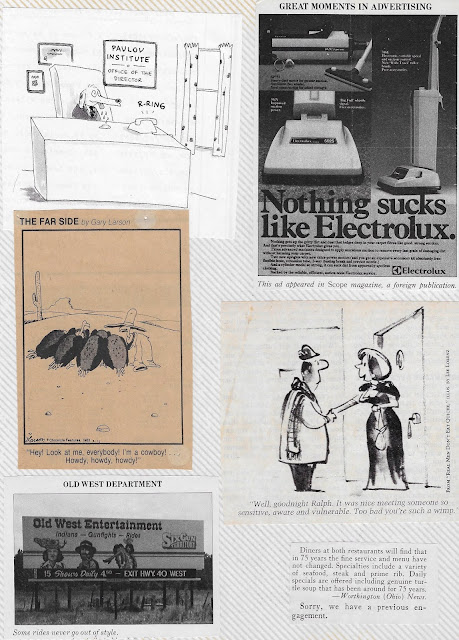Extremophiles are real, and absolutely astounding. Read about them, and be amazed...
Astronauts fear it. Biologists fear it. It is not human. It lives in isolation. It grows in complete darkness. It derives no energy from the sun. It feeds on asbestos. It feeds on concrete. It inhabits a gold seam on Level 104 of the Mponeng Mine near Johannesburg. It grows in lagoons of boiling asphalt. It thrives in a deadly miasma of hydrogen sulphide. It breathes iron. It needs no oxygen to live. It can survive for a decade without water. It can withstand temperatures of 323º Kelvin, hot enough to melt rubidium. It can sleep for one hundred millennia inside a crystal of salt, buried in Death Valley. It does not die in the hellish infernos at the Stadtbibliothek during the firebombing of Dresden. It does not burn when exposed to ultraviolet rays. It does not reproduce via DNA. It breeds, unseen, inside canisters of hair spray.It feeds on polyethylene. It feeds on hydrocarbons. It inhabits caustic geysers of steam near the Grand Prismatic Spring in Yellowstone National Park. It thrives in the acidic runoff from heavy-metal mines, depleted of their zinc. It abides in the shallows of the Dead Sea. It breathes methane. It can withstand temperatures of 333º K, hot enough to melt phosphorus. It resides in a fumarole of scalding seawater, deep in the bathyal fathoms of the Mid-Atlantic Ridge. It can endure pressures equivalent to sixty-five tons of force per square inch, nine times greater than the pressure at the nadir of the ocean and one tenth of the pressure required to crush graphite into diamond. It lives in the muck at the bottom of the Mariana Trench. It is ideally adapted to devour the wreck of the RMS Titanic. It does not die while suffering immolation in the Nazi bonfires at the Opernplatz in Berlin. It eats jet fuel.It feeds on nylon byproducts. It feeds on stainless steel. It inhabits a dormant volcano in the xeric waste of the Atacama Desert, where the rain falls only once per century. It blooms in a barren salina ten times saltier than the sea. It breathes hydrogen. It resides in micropores of superdense granite, crushed down 3,500 meters below the bedrock of the earth. It can withstand temperatures of 343º K, hotter than the flash point of aerosolized kerosene. It is adapted to devour the rubber tubing in the engines of the F-22 Raptor. It does not die in the explosion that disintegrates the space shuttle Columbia during orbital reentry. It does not die among the tornadoes of hellfire raging unchecked in the oil fields of Kuwait during the Gulf War. It gorges on plumes of petroleum venting from the wellhead of the Deepwater Horizon.It eats arsenic. It eats uranium. It resides inside the core of Reactor No. 4 at Chernobyl. It thrives in hydrochloric acid. It can withstand temperatures of 373º K, hot enough to boil the water in its own cells. It is ideally adapted to dwell inside any steel drums of radioactive waste now entombed at the Yucca Mountain Repository. It lives in the stratosphere. It can survive exposure to the vacuum of outer space. It can survive the effects of g-forces more than two thousand times greater than the surface gravity of the earth. It is the only known organism capable of exceeding the speed of sound. It can, in fact, repair damage to its DNA. It never evolves.It devours plutonium. It can endure long-term exposure to acids that eat away at human flesh. It can withstand temperatures of 383º K, hotter than the polar zones on the planet Mercury. It can hibernate for five hundred millennia in the core of a snowflake deep beneath the permafrost of Siberia. It awaits discovery in the abyssal fathoms of Lake Vostok, four thousand meters below the ice of Antarctica. It survives direct immersion in liquid nitrogen. It survives one thousand times the dosage of gamma radiation that can kill a human being. It is ideally adapted to eat hot graphite in the ruins of Unit 2 at Three Mile Island. It resides on the surface of a heat shield in the clean room at the Jet Propulsion Laboratory. It is fossilized inside the Murchison meteorite. It does not die in the conflagration during the collapse of the World Trade Center. It does not die in the crucibles of Treblinka.It resides in a soda lake, whose pH level equals the alkalinity of lye. It can withstand temperatures of 393º K, hot enough to melt sulfur. It can lie dormant for forty million years, hibernating inside the gut of a honeybee shrouded in a jewel of amber. It evades its predators by hiding in the firmware of the Intel Pentium III microchip. It propagates itself through the use of networked computers. It can pass itself off as a thought inside the human brain. It can survive direct blasts of cosmic rays. It is, in fact, the only known organism to survive being shot, point-blank, by the proton beam in the U-70 Synchrotron. It does not die in the incineration of Hiroshima. It does not die in the planetary firestorm after the impact of the Chicxulub meteor.It survives. It resides inside the robot scoop of the Viking 1 lander during tests for perchlorates on Mars. It can live through exposure to supercooling temperatures at the brink of absolute zero. It can hibernate for 250 million years, living as a spore encased in a halite nodule found in the Carlsbad Caverns. It can withstand temperatures of 423º K, hotter than the nose cone of the Concorde in supersonic flight. It can endure multiple meteor impacts. It can endure multiple atomic attacks. It lives nowhere on earth, except in one petri dish of agar, locked in a fridge at a level 4 biocontainment facility. It is totally inhuman. It does not love you. It does not need you. It does not even know that you exist. It is invincible. It is unkillable. It has lived through five mass extinctions. It is the only known organism to have ever lived on the moon. It awaits your experiments.
I've excerpted this text in toto from the June 2025 issue of Harper's Magazine. I normally post only excerpts from my readings in order to drive TYWKIWDBI readers to the sources. In this case I've embedded the full text from Harper's, but this is just an excerpt from an upcoming book by Christian Bok entitled The Xenotext: Book 2. Bok is a poet (which some of you may have surmised from some repetitive patterns of the text above). He is also the author of Eunoia, which I excerpted back in 2008; that book is unique in that each chapter is written using only one vowel. When Bok's new book becomes available, I plan to read it.
It should be apparent to knowledgeable readers, but I'll clarify that the passages in the text refer to a multitude of different extremophiles, who inhabit an unimaginably vast range of microenvironments.
Posted for a member of my extended family - Dr. Doug Nelson, who has devoted his career to the study of extremophiles at UC Davis.





















